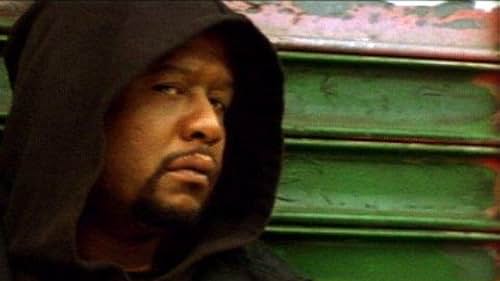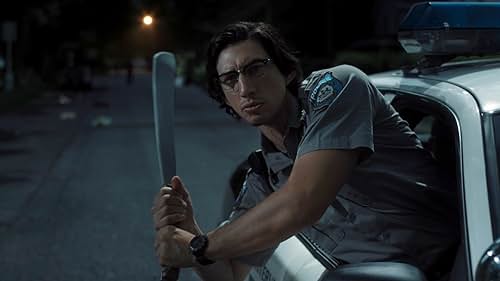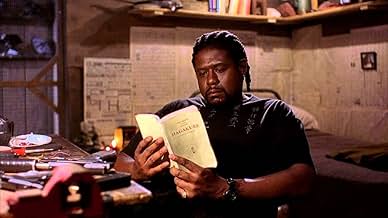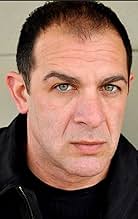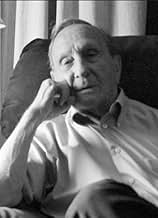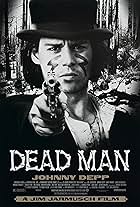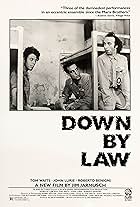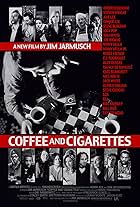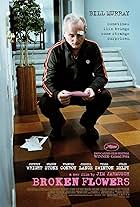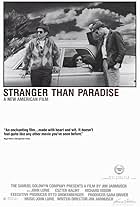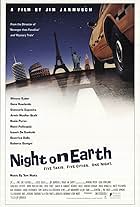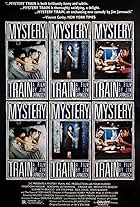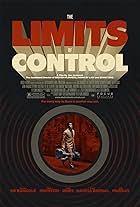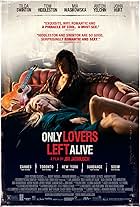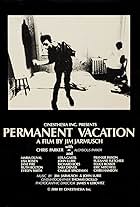An African-American Mafia hit man who models himself after the samurai of old finds himself targeted for death by the mob.An African-American Mafia hit man who models himself after the samurai of old finds himself targeted for death by the mob.An African-American Mafia hit man who models himself after the samurai of old finds himself targeted for death by the mob.
- Awards
- 1 win & 8 nominations total
- Director
- Writer
- All cast & crew
- Production, box office & more at IMDbPro
Storyline
Did you know
- TriviaJim Jarmusch stated in an interview that he wrote the role of Ghost Dog specifically for Forest Whitaker, and if Whitaker hadn't taken the role, the film probably would not have been made.
- GoofsBefore killing the hunters, Ghost Dog turns off his car by turning the key in the ignition. When he stole the car, however, he used an electronic device to override the ignition.
- Quotes
Ghost Dog: There is something to be learned from a rainstorm. When meeting with a sudden shower, you try not to get wet and run quickly along the road. But doing such things as passing under the eaves of houses, you still get wet. When you are resolved from the beginning, you will not be perplexed, though you still get the same soaking. This understanding extends to everything.
- Crazy creditsThe second to last person thanked at the credits' close is Akira Kurosawa--the Japanese filmmaker who filmed one of the Ghost Dog's central texts, Rashomon.
- ConnectionsFeatured in Siskel & Ebert: Instinct/The Loss of Sexual Innocence/Limbo (1999)
- SoundtracksIce-Cream
(instrumental mix)
Written by R. Diggs and C. Woods
Produced, mixed and arranged by RZA for Wu-Tang Productions, Inc.
Published by Careers-BMG Music Publishing, Inc.
On behalf of Ramecca Music and Wu-Tang Publishing (BMI)
Featuring Ghostface Killah, Cappadonna and Raekwon
Raekwon appears courtesy of Loud Records
Featured review
Ghost Dog certainly is an intriguing film. It breaks some new ground for writer/director Jim Jarmusch, who usually creates simple, funny, and heartfelt black and white films with many underlying themes. Ghost Dog is one of his few color films, and it is also the most out of character picture he has made to date. Instead of a slow-paced comedic drama, Ghost Dog is a slow-paced bloody crime film.
The plot deals with Ghost Dog (Whitaker), an expert mafia assassin living in present-day New York City who lives his life according to the ancient code of the Samurai.
Jarmusch somewhat reverses what Akira Kurosawa did in Throne of Blood by bringing Eastern culture to a Western setting. It's a rather fascinating idea, but I can't help but feel that Jarmusch kind of falls into a trap he teeters on almost constantly in his films: while he's so busy creating a slow, brooding atmosphere and interweaving subtle underlying themes, he occasionally forgets that this is still a movie. He still needs to keep the audience entertained. Ghost Dog sometimes moves so slowly that one becomes a little bit bored and anxious.
Another thing that doesn't work particularly well in Ghost Dog are Jarmusch's signature scenes of off-beat humor that often just come completely out of nowhere. They usually work quite well, such as Iggy Pop's and Billy Bob Thornton's blackly funny scene in Dead Man, but they just feel awkward here. E.g., Jarmusch develops a very peculiar group of gangsters in Ghost Dog, gangsters who think they're straight out of GoodFellas but are so incompetent that they can't even pay their rent nor figure out who they're trying to "whack". This is often quite amusing, but sometimes Jarmusch just goes over the top, such as when he makes one of the fifty-something Italian gangsters begin going on about how he loves rap and even start rapping his favorite verses right in the middle of a meeting of criminals. It's just uncomfortable.
Still, there's plenty to like here, and there are quite a few homages for avid film-lovers to spot, such as a cool little nod to the butterfly scene in Seijun Suzuki's Branded To Kill. Also, the acting is often spot-on. Forest Whitaker is absolutely perfect as Ghost Dog - detached, subtle, nuanced, and, most importantly, human.
Still, I hesitate to recommend this film. Jim Jarmusch is most definitely an acquired taste, but even his fans may find their patience tried during Ghost Dog.
The plot deals with Ghost Dog (Whitaker), an expert mafia assassin living in present-day New York City who lives his life according to the ancient code of the Samurai.
Jarmusch somewhat reverses what Akira Kurosawa did in Throne of Blood by bringing Eastern culture to a Western setting. It's a rather fascinating idea, but I can't help but feel that Jarmusch kind of falls into a trap he teeters on almost constantly in his films: while he's so busy creating a slow, brooding atmosphere and interweaving subtle underlying themes, he occasionally forgets that this is still a movie. He still needs to keep the audience entertained. Ghost Dog sometimes moves so slowly that one becomes a little bit bored and anxious.
Another thing that doesn't work particularly well in Ghost Dog are Jarmusch's signature scenes of off-beat humor that often just come completely out of nowhere. They usually work quite well, such as Iggy Pop's and Billy Bob Thornton's blackly funny scene in Dead Man, but they just feel awkward here. E.g., Jarmusch develops a very peculiar group of gangsters in Ghost Dog, gangsters who think they're straight out of GoodFellas but are so incompetent that they can't even pay their rent nor figure out who they're trying to "whack". This is often quite amusing, but sometimes Jarmusch just goes over the top, such as when he makes one of the fifty-something Italian gangsters begin going on about how he loves rap and even start rapping his favorite verses right in the middle of a meeting of criminals. It's just uncomfortable.
Still, there's plenty to like here, and there are quite a few homages for avid film-lovers to spot, such as a cool little nod to the butterfly scene in Seijun Suzuki's Branded To Kill. Also, the acting is often spot-on. Forest Whitaker is absolutely perfect as Ghost Dog - detached, subtle, nuanced, and, most importantly, human.
Still, I hesitate to recommend this film. Jim Jarmusch is most definitely an acquired taste, but even his fans may find their patience tried during Ghost Dog.
- brainofj72
- Jan 7, 2006
- Permalink
Details
- Release date
- Countries of origin
- Official sites
- Languages
- Also known as
- El Camino del Samurái
- Filming locations
- Production companies
- See more company credits at IMDbPro
Box office
- Gross US & Canada
- $3,308,029
- Opening weekend US & Canada
- $166,344
- Mar 5, 2000
- Gross worldwide
- $9,421,594
- Runtime1 hour 56 minutes
- Color
- Sound mix
- Aspect ratio
- 1.85 : 1
Contribute to this page
Suggest an edit or add missing content

Top Gap
By what name was Ghost Dog: The Way of the Samurai (1999) officially released in India in English?
Answer
